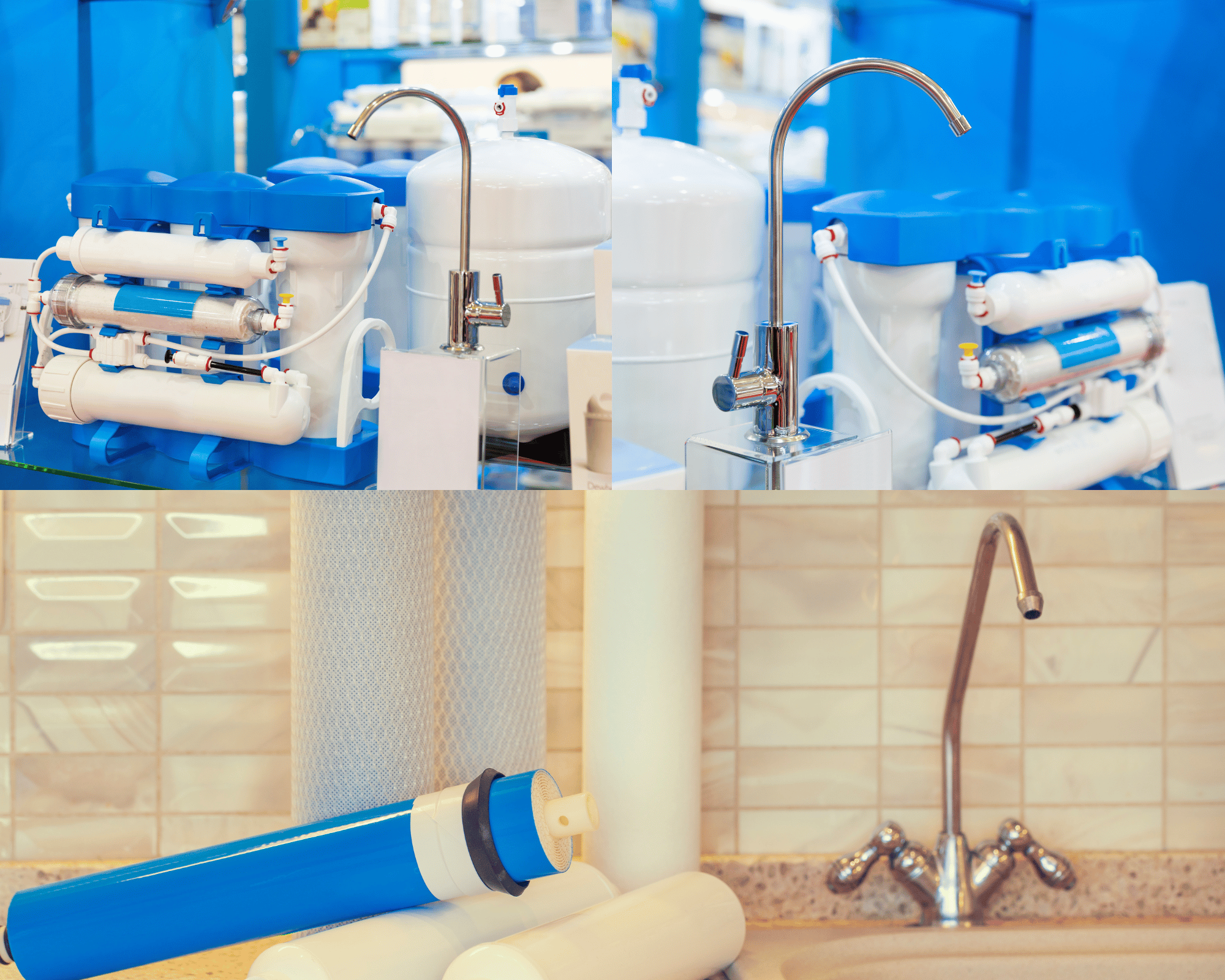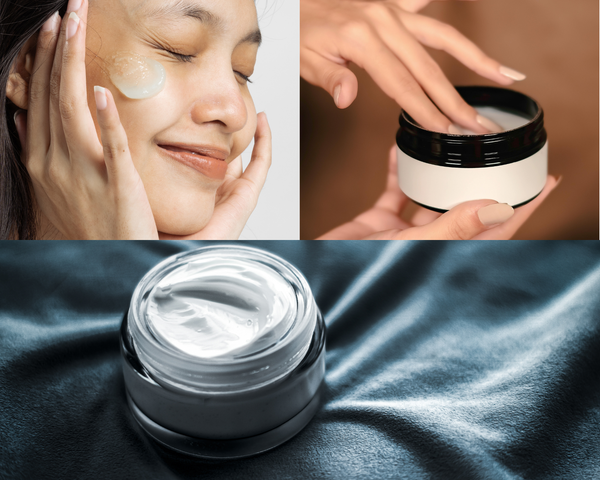In today's fast-paced world, ensuring access to clean, filtered water is more crucial than ever. With a plethora of options available, choosing the best carbon water filter can feel like finding a needle in a haystack. This article dives into the nitty-gritty of carbon water filters, offering a comprehensive comparison to help you make an informed decision.
Key Takeaways:
- Understanding Carbon Water Filters: Learn how carbon filters work and their benefits over other filtration systems.
- Top Picks for 2023: Discover our expert recommendations for the best carbon water filters available this year.
- Carbon Filter vs. Reverse Osmosis: Explore the differences and decide which system suits your needs best, including a comparison of under-sink filters and their effectiveness in filtering sink water.
How Carbon Water Filters Work
Carbon water filters are the unsung heroes of water purification. They operate by using activated coconut shell carbon to remove impurities and contaminants from water. The carbon’s porous nature allows it to trap particles, chemicals, and even unpleasant odors, leaving you with water that’s not only safe to drink but also tastes great. This method is particularly effective against chlorine, volatile organic compounds (VOCs), and other common pollutants.
The beauty of carbon filters lies in their simplicity and efficiency. Unlike some complex systems, they don’t require electricity or extensive maintenance. This makes them an attractive option for households seeking a straightforward solution to improve water quality. Plus, they’re often more affordable than other filtration systems, providing a cost-effective way to ensure your family has access to clean water.
Types of Water Filters
When it comes to ensuring your drinking water is clean and safe, there are several types of water filters to consider. Each type has its own set of advantages and is suited for different needs and preferences. Here’s a quick overview of the most common types:
- Pitcher Filters: These are portable and easy to use, making them a popular choice for many households. They are designed to remove chlorine, lead, and other common contaminants, improving the taste and quality of your tap water.
- Faucet Mount Filters: These attach directly to your faucet, providing on-demand filtered water. They are convenient and effective at reducing a wide range of contaminants, including lead and chlorine.
- Countertop Filters: These sit on your kitchen counter and connect to your faucet. They offer a higher capacity and more comprehensive filtration compared to pitcher filters, making them ideal for larger households.
- Under-Sink Filters: Installed under your kitchen sink, these systems provide a dedicated faucet for filtered water. They are more complex to install but offer robust filtration capabilities, effectively filtering contaminants from sink water used for drinking, cooking, and cleaning.
- Reverse Osmosis Systems: These are the heavyweights of water filtration, capable of removing a broad spectrum of contaminants, including heavy metals and dissolved solids. They are more expensive and require more maintenance but are ideal for those with specific water quality concerns.
By understanding the different types of water filters available, you can choose the one that best suits your needs and ensures your family has access to clean, safe drinking water.
Water Filter Pitcher
A water filter pitcher is a simple yet effective solution for improving the taste and quality of your drinking water. These pitchers are designed to be filled with tap water, which then passes through an activated carbon filter before being poured into a glass or container. This process helps to remove impurities and contaminants, making your water safer and more pleasant to drink.
One of the main benefits of water filter pitchers is their ease of use. They require no installation or plumbing modifications, making them a convenient option for renters or those who prefer a hassle-free solution. Additionally, water filter pitchers are typically more affordable upfront compared to more complex filtration systems, making them accessible to a wide range of consumers.
Water filter pitchers are also portable and compact, allowing you to easily store them in your refrigerator or take them with you on the go. This makes them an excellent choice for those who want to ensure they have access to filtered water wherever they are.
However, it’s important to note that water filter pitchers may not be as effective at removing certain contaminants, such as dissolved solids or heavy metals. They also require more frequent filter replacements to maintain their effectiveness. Despite these limitations, water filter pitchers remain a popular and practical choice for many households looking to improve their water quality.
By choosing a water filter pitcher, you can enjoy the benefits of cleaner, better-tasting water without the need for a more complex filtration system.
Faucet-Mounted Water Filter
Faucet-mounted water filters are a fantastic option for those seeking a convenient and efficient way to improve their drinking and cooking water. These filters attach directly to your faucet, allowing you to switch between filtered and unfiltered water with a simple lever or switch. This flexibility makes them ideal for households that want the benefits of filtered water without the commitment of a permanent installation.
One of the standout features of faucet-mounted filters is their ease of installation. Unlike under-sink systems, which may require professional plumbing modifications, faucet-mounted filters can be installed in minutes with no special tools. This makes them an excellent choice for renters or anyone who prefers a hassle-free setup.
These filters are highly effective at removing a wide range of contaminants, including chlorine, lead, and heavy metals, ensuring that your tap water is safe and pleasant to drink. Some models even come with additional features such as built-in water meters or filter replacement indicators, which help you keep track of when it’s time to change the filter.
When choosing a faucet-mounted filter, consider the specific contaminants you want to remove and the flow rate of the filter. A higher flow rate means you can enjoy filtered water more quickly, which is particularly useful for busy households. Overall, faucet-mounted water filters offer a practical and efficient solution for improving your water quality without the need for a more complex filtration system.
Key Features to Consider
When selecting a water filter, it’s essential to consider several key features to ensure you choose the best option for your needs. Here are some critical factors to keep in mind:
Contaminant Removal
The primary purpose of a water filter is to remove contaminants from your water. Common contaminants include chlorine, lead, heavy metals, and bacteria. It’s crucial to identify the specific contaminants you are concerned about and look for a filter certified to remove them. For instance, reverse osmosis filters are highly effective at removing a broad spectrum of contaminants, including dissolved solids and bacteria, while activated carbon filters excel at removing chlorine, lead, and heavy metals.
Top Picks for 2023
When it comes to choosing the best carbon water filter, several models stand out from the crowd. Our top pick is the Brita Longlast Pitcher Filter, known for its impressive lifespan and ability to remove a wide range of contaminants. It offers a perfect blend of performance and convenience, making it a favorite among consumers.
Another excellent choice is the PUR Faucet Mount Water Filter. This model attaches directly to your faucet, providing on-demand filtered water without the need for a separate pitcher. It's praised for its ease of installation and effectiveness in reducing lead and other harmful substances. For those looking for a more comprehensive solution, the Aquasana 3-Stage Max Flow system is a top contender, offering robust filtration capabilities for the entire household.
Carbon Filter vs. Reverse Osmosis reverse osmosis filters
The debate between carbon filters and reverse osmosis systems is akin to comparing apples and oranges. Both have their merits, but they serve different purposes. Carbon filters excel at removing chlorine, VOCs, and improving taste, making them ideal for everyday use. They’re also more budget-friendly and easier to install, which is a significant advantage for many households.
On the flip side, reverse osmosis filters are the heavyweights of water purification. They remove a broader spectrum of contaminants, including heavy metals and dissolved solids. A reverse osmosis system works by forcing water through a semipermeable membrane and various filters, effectively removing a wide range of contaminants. However, this comes at a cost—both financially and in terms of water waste. A reverse osmosis water filter can eliminate a broad spectrum of contaminants but may have drawbacks such as slow filtration rates, waste generation, and ongoing maintenance requirements. Reverse osmosis systems can be more expensive and require more maintenance, making them better suited for those with specific water quality concerns.
In-Depth Reviews of the Best Carbon Water Filters replacement filters
To help you make an informed decision, we’ve compiled detailed reviews of the top-rated carbon water filters. The Brita Longlast Pitcher Filter stands out for its longevity and effectiveness. It can filter up to 120 gallons of water, lasting three times longer than standard filters. Users rave about its ability to improve water taste and clarity, making it a staple in many kitchens.
The PUR Faucet Mount Water Filter is another standout, offering a convenient solution for those who prefer not to use a pitcher. It features a built-in electronic filter life indicator, ensuring you know exactly when it’s time for a replacement. This model is particularly effective at reducing lead, a common concern in older homes. Meanwhile, the Aquasana 3-Stage Max Flow system provides comprehensive filtration for the entire household, removing up to 99% of 77 contaminants, including chlorine and lead. This system is highly effective in improving the quality of sink water used for drinking, cooking, and cleaning.
Summary
Choosing the right carbon water filter can significantly impact your water quality and overall health. By understanding how these filters work and comparing top models, you can find a solution that meets your needs and budget. Whether you opt for a simple pitcher filter or a more advanced faucet mount system, the key is to prioritize clean, safe water for you and your family.
FAQ
Q1: How often should I replace my carbon water filter?
A1: The replacement frequency depends on the specific model and usage. Generally, pitcher filters like the Brita Longlast need replacing every 120 gallons or approximately every six months. Faucet mount filters may require more frequent changes, around every 100 gallons or three months.
Q2: Can carbon filters remove bacteria and viruses?
A2: Carbon filters are excellent at removing chemical contaminants and improving taste, but they are not designed to remove bacteria and viruses. For microbial contaminants, consider a system with additional filtration stages, such as reverse osmosis or UV purification.
Q3: Is a carbon filter sufficient for well water?
A3: While carbon filters can improve taste and remove some contaminants from well water, they may not be sufficient for all well water issues. It's advisable to test your well water to identify specific contaminants and choose a filtration system that addresses those concerns effectively.









